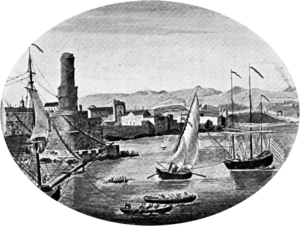As if many of us didn’t know that the CIA didn’t always know who they were dropping hellfire missiles on from drones, NBC News’ Richard Engel and Robert Windrem revealed classified documents that confirmed it. The documents were from a 14 month period that began in 2010 listing 114 drone strikes that killed as many as 613 people. However, in some of those strikes, the CIA did not know the identity of the victims.
About one of every four of those killed by drones in Pakistan between Sept. 3, 2010, and Oct. 30, 2011, were classified as “other militants,” the documents detail. The “other militants” label was used when the CIA could not determine the affiliation of those killed, prompting questions about how the agency could conclude they were a threat to U.S. national security.
The uncertainty appears to arise from the use of so-called “signature” strikes to eliminate suspected terrorists — picking targets based in part on their behavior and associates. A former White House official said the U.S. sometimes executes people based on “circumstantial evidence.”
Three former senior Obama administration officials also told NBC News that some White House officials were worried that the CIA had painted too rosy a picture of its success and likely ignored or missed mistakes when tallying death totals.
Micah Zenko, a former State Department policy advisor who is now a drone expert at the Council on Foreign Relations, said it was “incredible” to state that only one non-combatant was killed. “It’s just not believable,” he said. “Anyone who knows anything about how airpower is used and deployed, civilians die, and individuals who are engaged in the operations know this.”
Ret. Adm. Dennis Blair, who was Director of National Intelligence from Jan. 2009 to May 2010, declined to discuss the specifics of signature strikes, but said “to use lethal force there has to be a high degree of knowledge of an individual tied to activities, tied to connections.”
This article in McClatchy News, found that fewer of than 2% of those killed were Al Qaeda leaders, which is who the U.S. government says it targets.
Obama’s drone war kills ‘others,’ not just al Qaida leaders
by Jonathan S. Landay, McClatchy Newspapers, April 9, 2013
“It has to be a threat that is serious and not speculative,” President Barack Obama said in a Sept. 6, 2012, interview with CNN. “It has to be a situation in which we can’t capture the individual before they move forward on some sort of operational plot against the United States.”
Copies of the top-secret U.S. intelligence reports reviewed by McClatchy, however, show that drone strikes in Pakistan over a four-year period didn’t adhere to those standards.
The intelligence reports list killings of alleged Afghan insurgents whose organization wasn’t on the U.S. list of terrorist groups at the time of the 9/11 strikes; of suspected members of a Pakistani extremist group that didn’t exist at the time of 9/11; and of unidentified individuals described as “other militants” and “foreign fighters.” [..]
The documents also show that drone operators weren’t always certain who they were killing despite the administration’s guarantees of the accuracy of the CIA’s targeting intelligence and its assertions that civilian casualties have been “exceedingly rare.” [..]
McClatchy’s review found that:
– At least 265 of up to 482 people who the U.S. intelligence reports estimated the CIA killed during a 12-month period ending in September 2011 were not senior al Qaida leaders but instead were “assessed” as Afghan, Pakistani and unknown extremists. Drones killed only six top al Qaida leaders in those months, according to news media accounts.
Forty-three of 95 drone strikes reviewed for that period hit groups other than al Qaida, including the Haqqani network, several Pakistani Taliban factions and the unidentified individuals described only as “foreign fighters” and “other militants.”
Who’s the US Killing in Pakistan? Even the CIA Doesn’t Know
by Daphne Eviatar, Huffington Post, June 6, 2013
In his speech at the National Defense University in May, President Obama said that his administration “has worked vigorously to establish a framework that governs our use of force against terrorists — insisting upon clear guidelines, oversight and accountability that is now codified in Presidential Policy Guidance” that he had just signed.
Conveniently for the government, that policy guidance remains classified — which pretty much negates the claim about oversight and accountability.
The laws of war allow the United States to kill only members of declared enemy armed forces or civilians directly participating in hostilities. It’s hard to believe the U.S. government is actually following that law if it doesn’t even know who a quarter of the people it’s killing even are.
President Obama’s speech sounded pretty good when he made it, but the more facts trickle out about the drone program the more reason we all have to be skeptical.
What can be done? Human Rights First has set out exactly what steps (pdf) the United States can take to make sure its drone program complies with international law and doesn’t undermine human rights.
The president should start by making public that Presidential Policy Guidance he announced with such pride. Otherwise, neither the American public nor foreign allies or enemies have any reason to believe the U.S. government has reined in its clandestine killing operations at all.
Meanwhile, the White House and the Justice Department says that the assassinations of Americans is constitutional because they said so. At Huffington Post, Ryan J. Reilly reports on the lawsuit, Al-Aulaqi v. Panetta, filed by the American Civil Liberties Union and the Center for Constitutional Rights on behalf of the estates of Anwwar Al-Aulaqi and his 16-year-old son, Abdulrahman Al-Aulaqi, and Samir Khan. The lawsuit claims that their deaths were unconstitutional because they were denied due process.
The administration’s court filing also claimed that the government deserved qualified immunity because the plaintiffs “failed to allege the violation of any clearly established constitutional rights.” The government maintained that neither Attorney General Eric Holder’s letter to members of Congress nor Obama’s speech on national security had any effect on its legal posture in the case even though it was the first time the government formally acknowledged it had killed the American citizens. The previously classified information disclosed by Obama and Holder is “wholly consistent with Defendants’ showing that Anwar Al-Aulaqi’s due process rights were not violated,” the government said.
The judicial branch, the Obama administration argued, “is ill-suited” to evaluate the myriad “military, intelligence, and foreign policy considerations” that went into the decision to kill the American citizens. The government also argued that because Khan and Abdulrahman Al-Aulaqi were not specifically targeted by the government, they cannot claim they were subjected to an unconstitutional process.
So the Executive Branch is claiming to be judge, jury and executioner because the courts couldn’t possibly understand their reasoning now matter how illegal, unlawful or criminal the actions were because, omg, they were terrorists, maybe. Never mind, that we still don’t know who was targeted that resulted in the killing of Abdulrahman. Maybe if was the cafe owner, one of the other customers or the cousins. No other explanations has been given. That is not acceptable.
So long as the legal arguments for these drone strikes and “targeted” killings remain classified, it makes it damned difficult, if not impossible, to have an open debate in public on the effectiveness and legality of this program and other counter-terrorism programs. The vague statements, filled with nebulous claims are not going to placate the critics of these not so clandestine programs. We need to know what the government is doing in our names.
Time to come clean, Barack.


 Port Royal provided a safe harbour initially for privateers and subsequently for pirates plying the shipping lanes to and from Spain and Panama. Buccaneers found Port Royal appealing for several reasons. Its proximity to trade routes allowed them easy access to prey, but the most important advantage was the port’s proximity to several of the only safe passages or straits giving access to the Spanish Main from the Atlantic. The harbour was large enough to accommodate their ships and provided a place to careen and repair these vessels. It was also ideally situated for launching raids on Spanish settlements. From Port Royal, Henry Morgan attacked Panama, Portobello, and Maracaibo. Roche Brasiliano, John Davis (buccaneer), and Edward Mansveldt (Mansfield) also came to Port Royal.
Port Royal provided a safe harbour initially for privateers and subsequently for pirates plying the shipping lanes to and from Spain and Panama. Buccaneers found Port Royal appealing for several reasons. Its proximity to trade routes allowed them easy access to prey, but the most important advantage was the port’s proximity to several of the only safe passages or straits giving access to the Spanish Main from the Atlantic. The harbour was large enough to accommodate their ships and provided a place to careen and repair these vessels. It was also ideally situated for launching raids on Spanish settlements. From Port Royal, Henry Morgan attacked Panama, Portobello, and Maracaibo. Roche Brasiliano, John Davis (buccaneer), and Edward Mansveldt (Mansfield) also came to Port Royal. The main purpose our blogging is to communicate our ideas, opinions, and stories both fact and fiction. The best part about the the blogs is information that we might not find in our local news, even if we read it online. Sharing that information is important, especially if it educates, sparks conversation and new ideas. We have all found places that are our favorites that we read everyday, not everyone’s are the same. The Internet is a vast place. Unlike “
The main purpose our blogging is to communicate our ideas, opinions, and stories both fact and fiction. The best part about the the blogs is information that we might not find in our local news, even if we read it online. Sharing that information is important, especially if it educates, sparks conversation and new ideas. We have all found places that are our favorites that we read everyday, not everyone’s are the same. The Internet is a vast place. Unlike “
Recent Comments